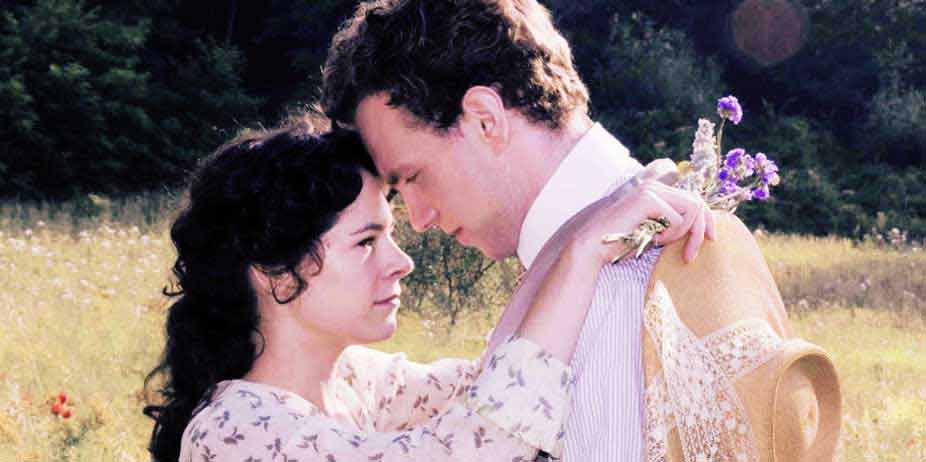A Room with a View (2007)
Few believe the classic film starring Helena Bonham-Carter and Daniel Day Lewis is in need of updating, but the BBC wanted its own adaptation and so Andrew Davies has brought us E. M. Forster's classic novel in a new medium. The result is a decent production with an ending that sent most of its fans into an uproar.
It has been a number of years since Lucy Honeychurch (Elaine Cassidy) last walked the streets of Rome, but now she wanders with a purpose ... and memories overflowing her thoughts. Prior to the war, she and her aunt Charlotte (Sophie Thompson) joined a tour group through Italy with the intention of learning more about the world and being out amidst society. Most of their companions are mild enough, apart from the adventurous novelist Miss Lavish (Sinad Cusack), whose books are filled with thrilling secret romances and high stakes adventure, but Lucy is mysteriously drawn to a young man by the name of George Emmerson (Rafe Spall). Rather quiet and contemplative, he is far different from his overly opinionated and often shockingly offensive father. Her aunt disapproves of their interest in one another, and when it comes to a climax in a stolen kiss, puts her foot down.
Believing it would be prudent to part from their company, Charlotte and Lucy journey to meet another set of friends in a different part of the country. The stiff but gentlemanly attentions of Cecil (Laurence Fox), who wants her hand in marriage, and the clumsy interferences of Reverend Eager (Timothy West) manage to assist her in forgetting for a time, but she has not seen the last of the Emmersons. The result is a fairly decent adaptation by most accounts of a novel that I have never been particularly fond of. A Room With a View and its various adaptations have a great many fans, but for some reason it has never really resonated with me. There is one lovely thing that sets this apart, and that is that the character of Miss Lavish provides some much needed comedic humor. I loved her the instant she barreled into the room and started off on her melodramatic descriptions of Italian men.
For the most part, the first three fourths of the film remain faithful to the original plot but toward the conclusion things happen that never did in the novel, and the film concludes on an astonishingly melancholy note. Perhaps this was Andrew Davis' opportunity to set his screenplay apart, or perhaps it was a colossal misjudgment, but whatever the cause, it infuriated most of its European viewers, and I suspect will not be any more well received in the States. The acting was quite good and I particularly liked Thompson as Charlotte; she's nowhere near as brilliant as Maggie Smith was in the part, but she is good for a laugh and seems more insecure and sensible in many respects than her predecessor. The costuming is quite lovely and the long walks and drives through the Italian countryside are simply glorious.
However, if my hopes were that this adaptation could escape the shocking frontal nudity of the original, I was disappointed. There is a scene midway through in which several of the men go skinny dipping in a pond, and wind up chasing one another naked through the woods because one of them has nipped another's clothes. This merry adventure sends them careening into the midst of -- yes, you might have guessed it, the women of the household. I spent most of the scene with one hand up to avoid catching an eyeful, but from what I grasped, there is still a lot of backside nudity, and some from the side, along with one or two shots from the front at a distance. There are also some nude statues in Rome that Lucy examines with interest, but that almost pales in comparison. There is a scene of violence in which a man is stabbed to death. Miss Lavish has some very forward notions and makes several scandalous comments, and Mr. Emmerson is an open atheist.
A Room With a View is a film of missed opportunities. It could have improved upon the material and only succeeded in a mediocre retelling of it. The offensive frontal nudity and depressing ending make it inappropriate for children, and older audiences may find themselves more entertained and uplifted with something else instead.

